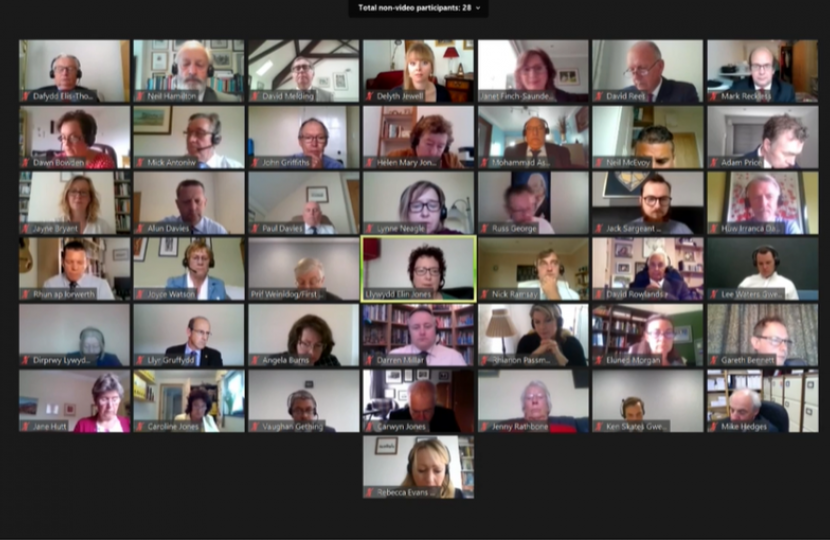
Janet Finch-Saunders MS, Shadow Minister for Social Care: The chair of Care Forum Wales has publicly criticised Public Health Wales for not engaging with care professionals before implementing the new 28-day COVID-free policy restrictions. This could potentially close half of the care homes in Wales due to the financial implications of this and the voids. Could you explain, First Minister, why those in our care sector were not consulted prior to the issuing of this letter? Also, not all COVID-19 test results are being received in the vital 48-hour window; some are taking up to three days. What effect will this have on the new policy of weekly care home testing? As of 1 June, only 22 of 68 homes had been mass tested locally. So, how can we be confident that all homes now will reach that milestone of mass testing, and more so, how are you going to carry out the retesting weekly in our care homes?
And, finally, will you urgently review the impact of 1,400 discharges to care homes in March and April, and the effect that that has on our infection rates, given that some of those were not tested before they left hospital? Diolch yn fawr.
Mark Drakeford MS, First Minister: Well, Llywydd, the answer to the Member's first question is to be found in her final question. The reason that we are proposing that someone who has tested positive should not be discharged to a care home for 28 days is precisely because of the concerns raised by the sector of people earlier in the progress of the pandemic being released from hospital to a care home and having a risk of bringing coronavirus with them. Our latest position is designed to make sure that that does not happen. Now, you can't have it both ways here. Either you don't want people with coronavirus to be in care homes or you don't. If you don't, then the 28-day rule is designed to deliver on that objective. And we remain in close conversation with the sector all the time.
Llywydd, we are confident that we will have completed our testing of care home residents and of care home staff by 12 June. It has been a most enormous effort. There have been instances in Wales where we've had to work very hard to persuade care homes of the advantage of this policy. And I understand that there will be care homes that are anxious about outsiders coming into the home because of the risk of the virus coming with them. But we've had quite a number of care homes where a lot of conversation has had to be had in order to allow the testing to take place, and that has delayed the testing in quite a number of instances. I see the Member shaking her head at me. I'm simply telling her the facts. I don't know what there is to disagree with them; that is simply a matter that is reported to us by health boards and testers, that not all care homes are equally receptive, and not all care home residents are willing to be tested. And that is a right that they have. It is not a compulsory system. It is an offer. And not all care home residents have wanted to take that offer up, and we have to respect that too.
We are confident that we can now test every care home worker weekly for four weeks, and we will see what we learn from that, and then we will make a decision about a proportionate approach to testing in this sector once that four-week period is over.
ENDS

